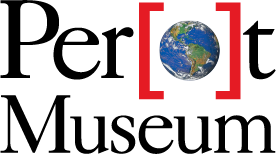
Research and Collections
The Perot Museum research and collections teams work to understand the paleontological story of our region. From reconstructing ancient ecosystems to working out the evolutionary relationships of fossil plants and animals, the team is committed to the study and preservation of our natural history and heritage.
Curators

Dr. Ron Tykoski | Vice President of Science and Curator of Vertebrate Paleontology
Dr. Tykoski oversees the Museum’s collections, research program, and the Gems & Minerals Hall. His research mainly focuses on the anatomy and evolutionary relationships of different reptile groups, from dinosaurs (including birds!) to crocodilians and beyond. From his undergraduate days at the University of Michigan–Ann Arbor, to graduate studies at The University of Texas at Austin, he’s spent years working with collaborators making discoveries and investigating paleontological questions from the southwest, Alaska, and Texas.

Dr. Dori Contreras | Director of Paleontology and Curator of Paleobotany
Dr. Contreras oversees the Museum’s Paleo prep labs, collections of fossil plants and runs an active program to discover new fossils that answer questions about how Earth’s vegetation has changed through time. She studied botany as an undergraduate at Texas State University and earned her PhD in Integrative Biology at the University of California Berkeley. Her research focuses mainly on plant communities of the southwestern US during the Mesozoic period (the age of dinosaurs). Additionally, she works with a worldwide network of collaborators to develop new digital technologies for studying the fossil record of plants and their environments.
Paleo Lab
The Perot Museum has some of the largest and most active fossil preparation labs in the region, staffed with a team of skilled fossil preparators and volunteers who work to extract and preserve fossils of plants and animals for research and exhibition.
- Mariah Slovacek, Paleo Lab Manager
- Tabatha Gabay, Fossil Preparator
- Brianna Smith, Fossil Preparator


Collections Staff
- Karen Morton, Collections Manager
- Devorah Hale, Collections Assistant
Submit Your Discovery
North Texas has a rich geological and paleontological history. Many of the specimens in the Museum’s collections were discovered by everyday folks who found something odd and wanted to have it identified. Our research staff can usually identify a specimen based on a few clear photographs.




